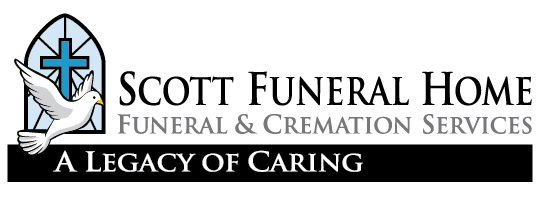Image courtesy of Pexels
The ABCs of Funeral Planning: A Calm, Practical Guide
Planning now isn’t morbid—it’s a kindness. Little is more challenging than trying to make funeral decisions on the fly during the grieving process. Decisions made in advance spare your loved ones from guessing during a hard week, reduce costs through comparison, and keep important documents in one place.
Gather key information
Start by listing what you want, who needs to know, and where everything lives. If you need a clear reference to build your checklist, use a neutral primer to organize affairs to ease burdens. Then set a calendar reminder to review your plan once a year or after any major life change.
Keep documents organized and easy to use
To ensure you are organized from the start, centralize your paperwork so it’s quick to find and simple to share. Create a single “Final Arrangements” binder (both physical and digital) that includes your will, powers of attorney, beneficiary designations, service outline, disposition instructions, contact list, and paid receipts. As files arrive in multi-page PDFs, use a lightweight workflow for how to extract pdf pages so you can pull out just the sections your executor or clergy needs without sending the entire packet. Name files clearly (e.g., “Smith_Will_2025_Signed.pdf”) and keep a printed index inside the front cover. Update versions immediately after any change and archive the old ones to avoid confusion.
Make sure your will is up-to-date
Your will should match your life today, not ten years ago. Revisit beneficiaries after births, deaths, marriages, divorces, or major purchases, and confirm your executor is still willing and able to serve. If you’re weighing a codicil versus a full rewrite, read a plain-English overview on how to update a will correctly and capture those decisions in writing. Store the signed original where it’s safe and accessible, with copies for your executor and attorney. While you’re at it, align powers of attorney and healthcare directives with the same people and preferences.
Decide on burial or alternatives
The “how” of final disposition shapes cost, timeline, and ceremony options. Traditional burial, cremation, green burial, and donation each carry different requirements and budgets. Think about your values (environmental impact, faith traditions, simplicity) and discuss them with the people who will carry out your plan. If sustainability matters, for instance, review definitions and availability to compare green burial options before proceeding. Write down these personal preferences, clothing or container wishes, and any cultural or religious elements that matter to you.
Plan how you’ll pay
Decide in advance where funds will come from and how quickly they’ll be available. Options include payable-on-death (POD) accounts, dedicated savings, life insurance, and pre-need arrangements. Each has trade-offs in flexibility, control, and timing. For a clear overview of pros and cons, read how to fund a funeral responsibly, then choose the method that best balances cost and access. Tell your executor where the money is and how to access it so no one is waiting on paperwork during a difficult week.
Decide what kind of service you want
Your service can be traditional, minimal, or something uniquely you. Outline the tone, music, readings, speakers, and any rituals you want included. Note preferences for venue (house of worship, graveside, community hall, home), photo displays, and reception details. Draft a short obituary with key facts and a few lines that reflect your life; leave room for your family to add personal touches. Clear direction here eases stress and helps loved ones focus on honoring you rather than debating details.
Communicate your wishes clearly
Even the best plan fails if no one sees it. Choose who needs full access (executor, close family, clergy), share where documents are stored, and walk them through the highlights. If you’re unsure how to begin, use a step-by-step starter to start the wishes conversation and set a time to revisit it annually. Keep the tone practical and kind; this is about helping the people you love make confident choices on your behalf. After the talk, send a simple summary email so everyone remembers what you decided.
One-hour start plan:
- List your key decisions (disposition, service style, who’s in charge).
- Email your executor with where documents live and how to access them.
- Save quotes and funding details into your binder.
- Put a 12-month reminder on your calendar for a quick review.
It can feel morbid at first, but making your own funeral arrangements ensures your wishes are met, and it ensures your family doesn’t face added challenges during an already difficult time. Plan once; lighten the load forever. Your future self—and your loved ones—will thank you.
Discover compassionate and personalized funeral services at Scott Funeral Home Tacoma, where honoring your loved ones is our utmost priority.



